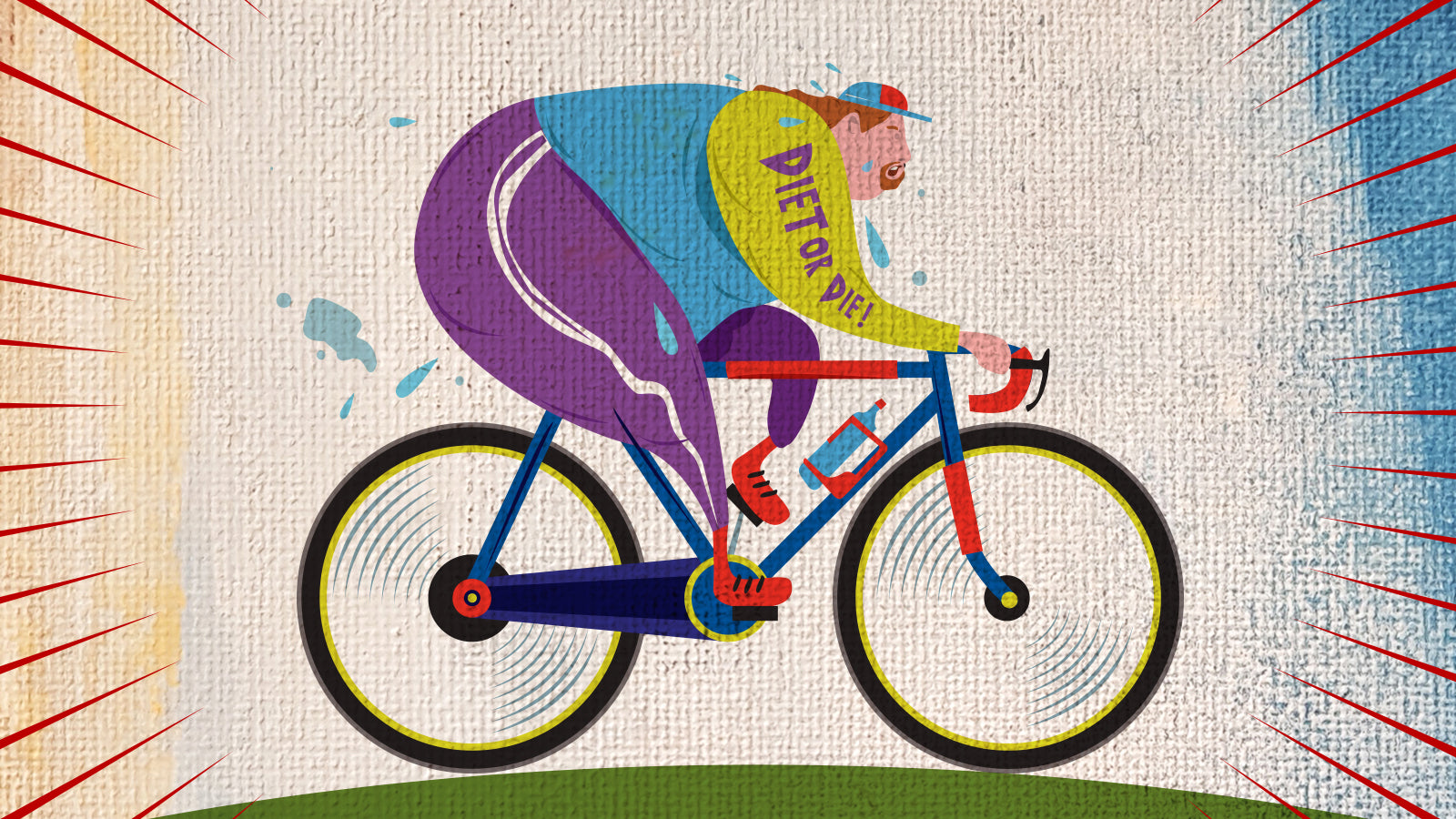Your Cart is Empty

By Kristen Arnold
So you’re shooting for that magic watts per kg sweet spot and decide to lose some weight to tip the scales. The questions are, how will you lose the weight and will this period of weight loss compromise your training and make you slower? The answers are, it depends and maybe.
Here you can check out a free webinar recording with Source Endurance that I hosted on Weight Loss for Cyclists. In this webinar we go over defining ideal weight for cyclists, creating a timeline and a plan to achieve that weight and tips and tricks to make sure we are properly fueled for training while still losing weight.

The body needs to be burning more energy than it is receiving to lose weight. Common pitfalls made by cyclists on their quest for weight loss include eating too many high calorie foods outside of training and too little high calorie foods in the hours during and around training. The body needs to know it can rely on a steady stream of fuel to keep systemic stress levels (cortisol levels and other inflammatory marker levels) down and promote weight loss all while continuing to promote a productive training stimulus.
Another common pitfall of cyclists is restricting entire food groups. The body needs all the vitamins, minerals, energy and other nutrients available in the 5 basic food groups to thrive and avoid deficiencies: meat and plant-based protein rich foods, grains and starchy vegetables, fruit, nonstarchy vegetables, fat rich foods. Dairy can sometimes be its own food group or roped into protein-rich foods. While restricting carb-rich foods is a popular weight loss method, there are very few studies showing that restricting carbs has the same effect on athletes as it does on a less active population. The Academy of Nutrition and Dietetics, Dietitians of Canada, and the American College of Sports Medicine support the intake of carbohydrates for endurance athletes both during and outside of times of weight loss.

Athletes can expect to lose half to two pounds per week in times of weight loss or less than 1% of their body weight per week. Losing weight at this rate has the highest success rate of keeping weight off for the long term, rather than gaining it back. This also ensures athletes are in an energy deficit but not too much that they compromise their training and immune system.
If you are considering losing weight before your big event and want to make sure your body is optimally fueled and stays healthy during this time, consider working with a sports registered dietitian to apply best methods for you. What works for one athlete may not work for others and considering factors such as age, sex, hormone levels, medical issues, dietary restrictions, time availability, training volume will all be in the wheelhouse of a sports RD.
ABOUT THE AUTHOR:

Kristen is a Registered Dietitian Nutritionist and a board-Certified Specialist in Sports Dietetics. She also has a Master’s in Human Nutrition from The Ohio State University. She owns a private practice nutrition counseling business focusing on performance nutrition for women as well as is a sports dietitian and coach for bicycle racers with Source Endurance where she coaches entry-level to national elite-level cyclists in mountain, road, and cyclocross bike racing. In addition to nutrition counseling and coaching, Kristen is a professional cyclist for team Wolfpack p/b JAKROO.
Comments will be approved before showing up.
